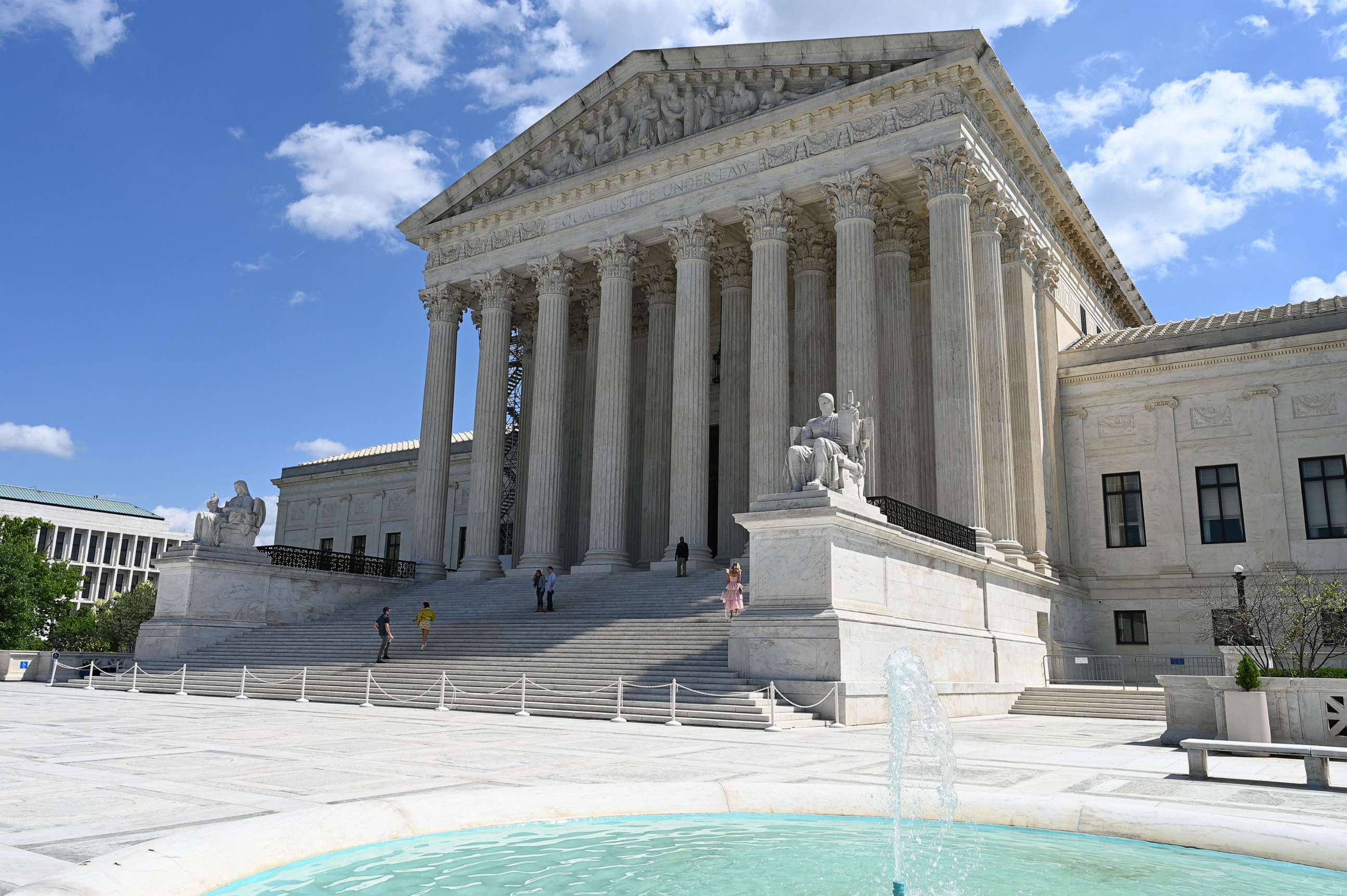Supreme Court rejects challenge by Texas and Louisiana to Biden deportation policy
The court held the GOP-led states lacked standing to sue.
The Supreme Court on Friday rejected a state-led challenge to a Biden deportation policy, marking a big win for the administration.
The court ruled 8-1 that Texas and Louisiana lacked standing bring the case, in which they tried to force the administration to more aggressively arrest and deport undocumented immigrants. The lone dissent came from Justice Samuel Alito.
In his 14-page opinion, Justice Brett Kavanaugh said the states "brought an extraordinarily unusual lawsuit."
"They want a federal court to order the executive branch to alter its arrest policies so as to make more arrests," Kavanaugh wrote. "Federal courts have not traditionally entertained that kind of lawsuit; indeed, the states cite no precedent for a kind of lawsuit like this."

The case involved Department of Homeland Security guidelines issued in 2021 for immigration enforcement that prioritized the arrest and removal of noncitizens who are suspected terrorists or dangerous criminals, or who had unlawfully entered the country only recently.
Texas and Louisiana argued the rules were an abuse of discretion and violated federal law while also saddling states with higher costs associated with social services and incarceration of migrant criminals directly flowing from the administration's policy.
Kavanaugh said none of the alleged injuries could be resolved by a court order.
For decades, Congress has not allocated sufficient resources to arrest and remove all 11 million noncitizens unlawfully in the country -- a dynamic that has spanned the administrations of both parties.
"That reality is not an anomaly -- it is a constant," Kavanaugh wrote. "The executive branch must balance many factors when devising arrest and prosecution strategies. That complicated balancing process in turn leaves courts without meaningful standards for assessing those policies."
Each of the past five presidential administrations has issued similar guidelines given the limited resources available to the Customs and Border Protection and Immigration and Customs Enforcement agencies.
The court's ruling means the administration's immigration enforcement priorities, which have been on hold since June 2022, after a federal district vacated the guidelines nationwide, will now take effect.
"The Court’s decision follows a long line of precedents that make the exercise of enforcement discretion by executive authorities all but unreviewable by the courts," said Cary Coglianese, director of the Penn Program on Regulation at the University of Pennsylvania Carey Law School. "The Court’s 8-1 outcome today not only delivers the Biden Administration a 'win,' it also reinforces principles that have long provided executive officials in any administration a major source of discretionary power."
Justice Kavanaugh said while the court held the states lacked standing, "we do not suggest that federal courts may never entertain cases involving the Executive Branch’s alleged failure to make more arrests or bring more prosecutions."
Justice Alito, in his dissent, wrote the majority decision endorsed "sweeping executive power" over Congress' intentions.
"Congress passed and President Clinton signed a law that commands the detention and removal of aliens who have been convicted of certain particularly heinous crimes," he wrote. "The Secretary of Homeland Security, however, has instructed his agents to disobey this legislative command and instead follow a different policy that is more to his liking. And the Court now says that no party injured by this policy is allowed to challenge it in court."
"I would not blaze this unfortunate trail," Alito added, in his dissent.




